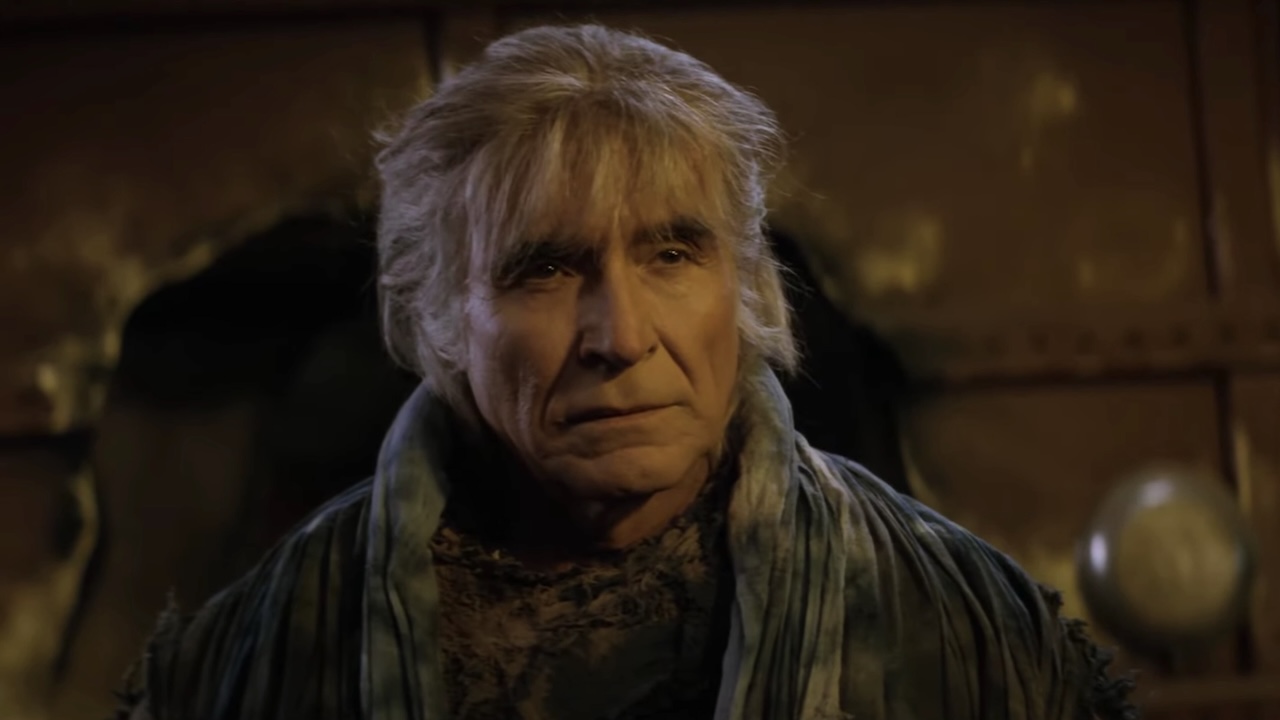Could Star Trek: Khan Have Started as a TV Series? Discover the Surprising Story!

Published: 2025-09-08 13:05:15 | Category: Trump GNEWS Search
The upcoming podcast series, Star Trek: Khan, reimagines the backstory of one of Star Trek’s most iconic villains, Khan Noonien Singh. Originally intended as a miniseries, the adaptation has transitioned into a podcast format, allowing for deeper engagement with the character's tragic journey. This shift aims to respect the complex legacy of Khan while fitting seamlessly into the broader Star Trek narrative.
Last updated: 14 October 2023 (BST)
Key Takeaways
- Star Trek: Khan explores the 20-year gap between "Space Seed" and Star Trek II: The Wrath of Khan.
- The podcast format allows for a deeper narrative exploration of Khan's character.
- Kirsten Beyer and David Mack adapted the story to better fit within Star Trek's expansive mythology.
- George Takei and Tim Russ reprise their roles in a framing story for the series.
- The narrative emphasises Khan's tragic misunderstanding by history.
The Evolution of Khan Noonien Singh
Khan Noonien Singh, initially introduced in the episode "Space Seed" of Star Trek: The Original Series, was portrayed by Ricardo Montalbán. His character was a genetically engineered superhuman from the late 20th century, whose intelligence and physical prowess led him to become a formidable adversary of Captain James T. Kirk. However, it wasn't until Montalbán reprised the role in Star Trek II: The Wrath of Khan that the character truly cemented his place in Star Trek lore.
The Wrath of Khan showcased the character's complexity, portraying him as more than just a villain, but as a tragic figure driven by revenge and lost love. This depth has made Khan a subject of interest among fans and creators alike, prompting new explorations into his backstory.
From Miniseries to Podcast
Initially conceived as a three-episode miniseries by director Nicholas Meyer, Star Trek: Khan was intended to delve into the events that unfolded after "Space Seed". However, as co-writer Kirsten Beyer noted, the adaptation into a podcast format was deemed more fitting. This decision was influenced by the evolving landscape of the Star Trek universe, which has dramatically expanded since the original series aired.
Beyer emphasised the need to present a narrative that resonates with both longstanding fans and newcomers to the franchise. She recognised that elements of the original concept might not align with contemporary audience expectations. The podcast format allows for creative flexibility, enabling a more nuanced exploration of Khan's character and motivations.
The Tragic Story of Khan
Star Trek: Khan chronicles Khan’s life on Ceti Alpha V after his exile at the end of "Space Seed". Over twenty years, the planet transforms from a potential paradise into a desolate wasteland following the explosion of Ceti Alpha VI, leading to the death of Marla McGivers, Khan's romantic interest. This narrative arc is crucial as it portrays the isolation and despair Khan faces, contributing to his eventual transformation into the vengeful character seen in The Wrath of Khan.
The podcast also expands on the emotional and psychological aspects of Khan's character. By depicting his struggles and losses, the series offers a more profound understanding of his motivations, presenting him as a tragic figure rather than merely a villain. Beyer described the narrative as a tragedy, highlighting the series of events that led to Khan’s misunderstood legacy.
Familiar Voices in New Roles
In Star Trek: Khan, familiar voices return to the franchise, adding a layer of continuity and nostalgia for fans. George Takei reprises his role as Hikaru Sulu, while Tim Russ returns as Tuvok from Star Trek: Voyager. Their involvement not only enriches the storytelling but also connects the new narrative to the established Star Trek canon.
The casting of Naveen Andrews as Khan and Wrenn Schmidt as Marla McGivers introduces fresh interpretations of these iconic characters. Andrews' portrayal aims to capture the complexity of Khan, while Schmidt's characterisation of Marla provides a new perspective on her relationship with Khan, exploring her motivations and challenges during their time on Ceti Alpha V.
Contextualising Khan's Legacy
Khan’s character has been a focal point of discussion among Star Trek fans and scholars. His portrayal raises important questions about power, identity, and the ethics of genetic engineering. As audiences reflect on the implications of these themes, the release of Star Trek: Khan presents an opportunity to revisit and reassess Khan's legacy within the context of contemporary societal issues.
The podcast format also allows for a more intimate exploration of themes like isolation, loss, and revenge. By focusing on Khan's personal tragedy, the series encourages listeners to empathise with a character often viewed solely as a villain. This deeper examination may resonate with audiences in today’s complex world, where themes of misunderstanding and conflict are prevalent.
What’s Next for Star Trek: Khan
As Star Trek: Khan prepares for its release, anticipation builds among fans eager to explore this new chapter in the Star Trek universe. The podcast format offers a unique opportunity for storytelling, potentially paving the way for similar adaptations within the franchise. Depending on the audience's response, there may be further explorations of Khan's character or other iconic figures from the Star Trek lore.
Moreover, the success of Star Trek: Khan could influence how future Star Trek narratives are developed, encouraging a blend of traditional storytelling with modern mediums like podcasts. This evolution reflects the changing landscape of media consumption and the desire for innovative storytelling approaches.
FAQs
What is Star Trek: Khan about?
Star Trek: Khan explores the events that transpire between the original "Space Seed" episode and Star Trek II: The Wrath of Khan, focusing on Khan's life on Ceti Alpha V and his struggles following his exile.
Who are the main voice actors in Star Trek: Khan?
The podcast features Naveen Andrews as Khan, Wrenn Schmidt as Marla McGivers, with George Takei reprising his role as Hikaru Sulu and Tim Russ as Tuvok.
Why was Star Trek: Khan changed from a miniseries to a podcast?
The adaptation was shifted to a podcast format to allow for a more flexible and nuanced exploration of Khan's character, fitting better within the evolving Star Trek mythology.
What themes are explored in Star Trek: Khan?
The series delves into themes of tragedy, isolation, revenge, and the complexities of Khan's character, offering a deeper understanding of his motivations and legacy.
How does Star Trek: Khan connect to the wider Star Trek universe?
Star Trek: Khan incorporates familiar characters and narratives from the Star Trek canon, ensuring continuity while also expanding on the character's backstory and emotional depth.
The journey of Khan Noonien Singh is a poignant reflection on the nature of villainy and the impact of history on identity. As we delve into his story through Star Trek: Khan, we are reminded of the complexities that define us all. How will this reimagining of Khan resonate with today’s audiences? #StarTrek #Khan #Podcast



